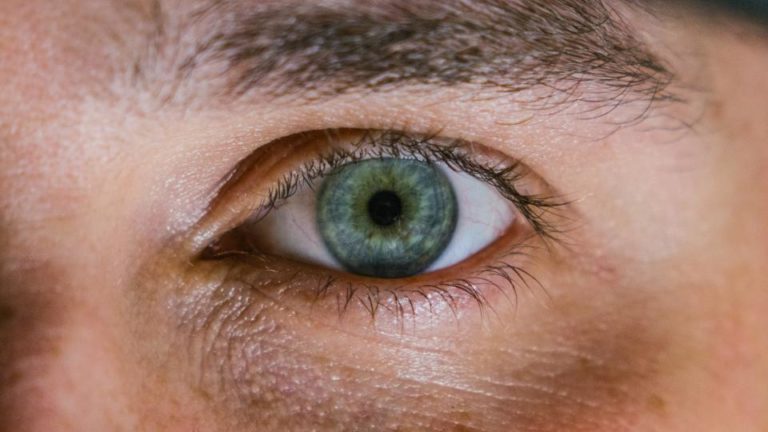
There are around 50 million people living with dementia worldwide, according to the World Health Organization. While dementia and Alzheimer’s disease are often used interchangeably, there are important differences between them. Here’s what you need to know.
Dementia vs. Alzheimer’s
Here’s the first thing you need to know: how to tell the difference between dementia and Alzheimer’s disease. Dementia is an umbrella term for symptoms like impaired memory and thinking that interferes with daily living; Alzheimer’s disease is a specific type of dementia.
Other types of dementia include vascular dementia, dementia with Lewy bodies, frontotemporal dementia, Parkinson’s disease, and Huntington’s disease.
“Alzheimer’s is the most common form of dementia—about 60 to 70 percent of the time, a patient with dementia has Alzheimer’s,” says Richard Isaacson, MD, Director of the Alzheimer’s Prevention Clinic at NewYork-Presbyterian/Weill Cornell Medical Center.
The reason you hear about Alzheimer’s most often is not only because it is the most common type of dementia, but also because the science behind Alzheimer’s is the most advanced across all dementias,” explains Dr. Isaacson.
Causes of dementia are vastly different
A medical illness, metabolic issue (like a nutritional or thyroid problem), vascular disease (like a stroke), or, rarely, infectious diseases can affect brain cells, causing dementia. Even mad cow disease, which is very rare, can contribute to dementia, says Dr. Isaacson.
A condition called depressive “pseudo” dementia is another possible source. As he explains, when levels of the neurotransmitter serotonin run low, you may have trouble paying attention. And when you’re distracted, you have trouble remembering things, which can manifest as dementia.
On the other hand, Alzheimer’s has its own origins. It’s a brain disease marked by deposits of beta-amyloid plaques and proteins called tau that damage cells in brain regions that control functions like thinking, memory, and reasoning.
Multiple factors can be at play
There’s also what’s called mixed dementia, meaning there are multiple conditions that can come together to cause dementia. “Thirty percent of the time, patients who have Alzheimer’s also have a vascular disease that makes cognitive symptoms worse,” says Dr. Isaacson.
Alzheimer’s and dementia with Lewy bodies (in this disease, clumps of alpha-synuclein proteins develop in the brain) have also been found to occur together.
Symptoms can look very similar
Losing your keys—again—and forgetting where you parked are basic memory problems, so how do you know when it crosses the line to dementia or Alzheimer’s? According to the Alzheimer’s Association, in order for a person to be diagnosed with dementia, two of the following must be “significantly impaired”: memory, communication and language, the ability to focus and pay attention, reasoning and judgment, and visual perception.
When it comes to Alzheimer’s, you may forget new information or find that you have to ask family members to remember important facts you should be able to keep track of yourself. (It’s not those little brain blips where you can’t remember the name of your second cousin and then it comes to you later—that’s normal).
You may be able to prevent Alzheimer’s
“We have the Alzheimer’s Prevention Clinic, and the fact that you can talk about those words together is advanced,” says Dr. Isaacson. The clinic investigates how lifestyle choices—a healthy diet, exercise, social and mentally stimulating activities, as well as everyday habits, and ample sleep can markedly reduce your risk of Alzheimer’s. In fact, in a study published in the Lancet Neurology, reducing certain risk factors can decrease the risk of Alzheimer’s by 33 percent.
The most important ways to prevent Alzheimer’s: Control diabetes and high blood pressure, reduce weight if obese, stay active, treat depression, don’t smoke, and stay in school. The Lancet, in a 2017 article, also notes that staying social (spending time with friends and family members) and managing hearing loss have been shown to be among the controllable factors that may help prevent dementia.
Treatment options depend on the type of dementia
There are virtually no FDA-approved therapies for dementia (only one approved drug for Parkinson’s dementia), but there are four medications that target Alzheimer’s, according to Dr. Isaacson. And while these drugs don’t stall disease progression (or cure the disease), they can help control symptoms.
Patients of Dr. Isaacson’s say these drugs may help for six to nine months, but many stay on them for the long haul because they help with behavioral symptoms such as agitation and aggression. “When you stop the medications, the psychological symptoms get worse,” he says.
As for other types of dementia, lifestyle changes may be the best option. Treatment for vascular dementia relies on doing things that are healthy for your arteries and heart: reducing blood pressure and cholesterol, and controlling diabetes. “Managing other chronic conditions is important,” says Dr. Isaacson. “Those are a great way to press the fast-forward button on dementia.”
You can find out if you’re at an increased risk of Alzheimer’s now
If you get evaluated for Alzheimer’s, your doctor can make a diagnosis based on symptoms, a clinical history, and medical tests (to rule out causes like thyroid issues or nutritional deficiencies). Brain imaging tests like a cat scan or MRI can look for beta amylase plaques gunking up brain regions.

























